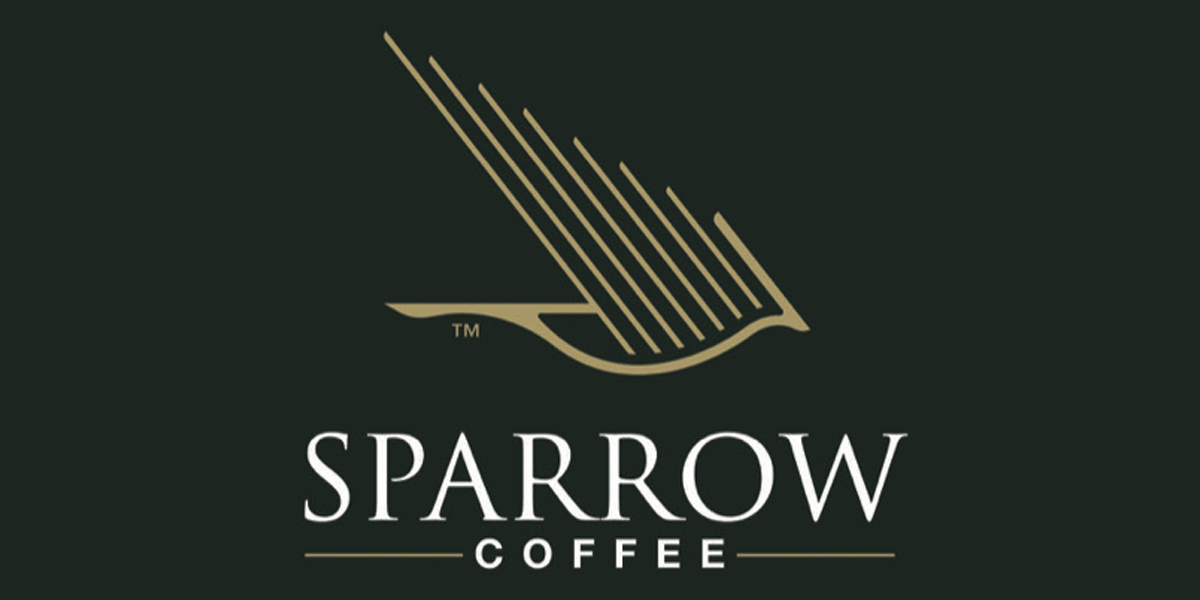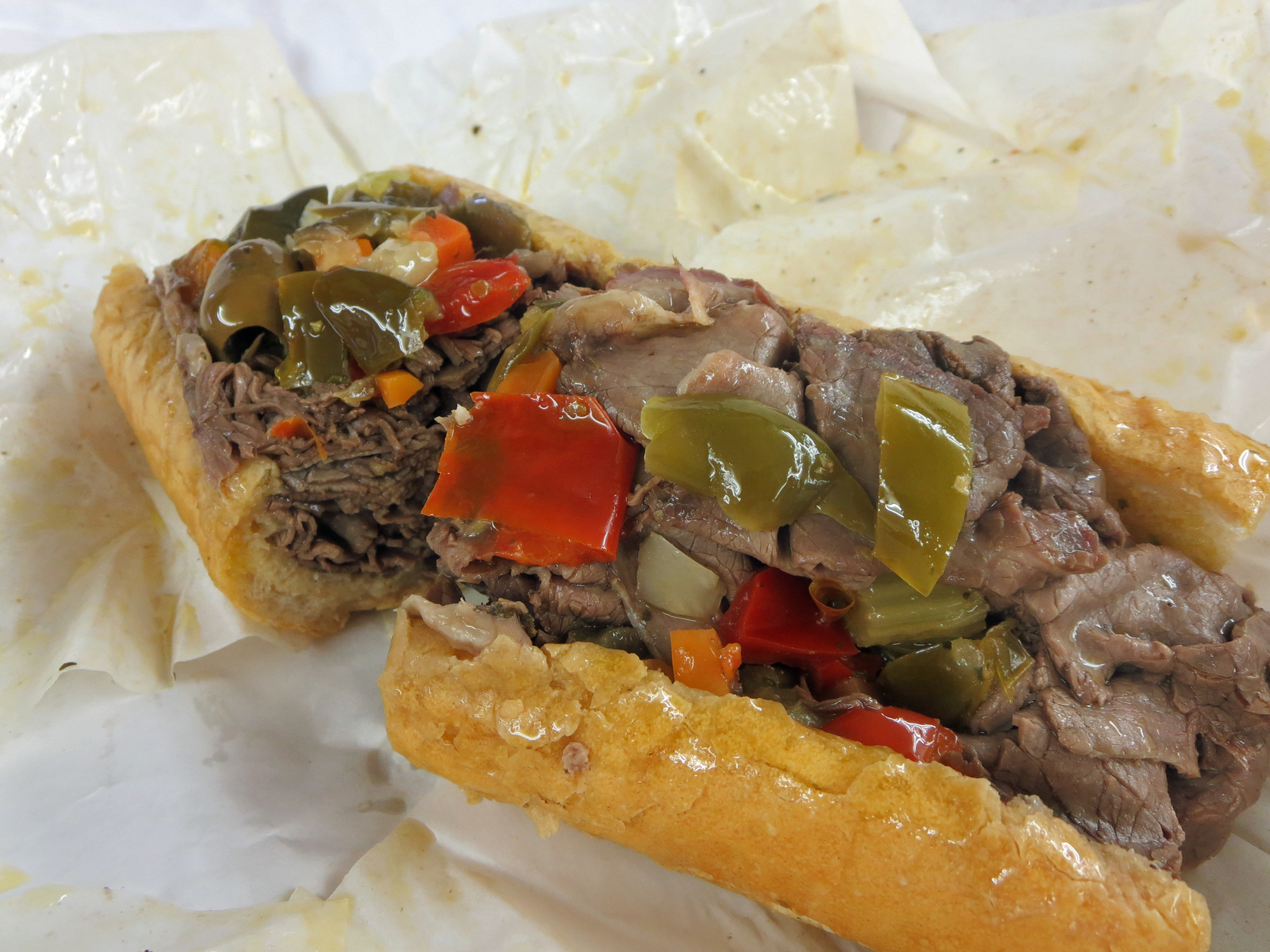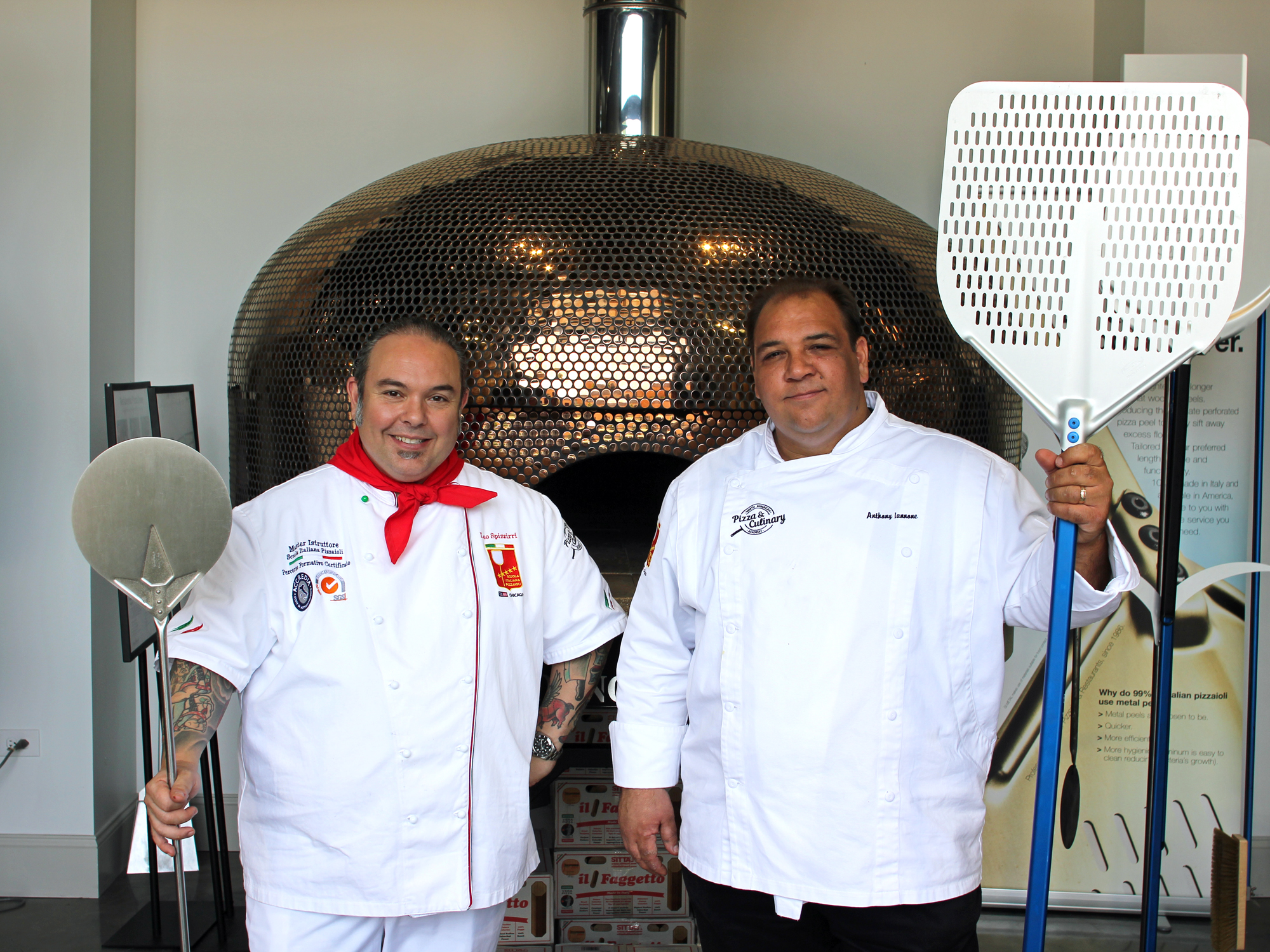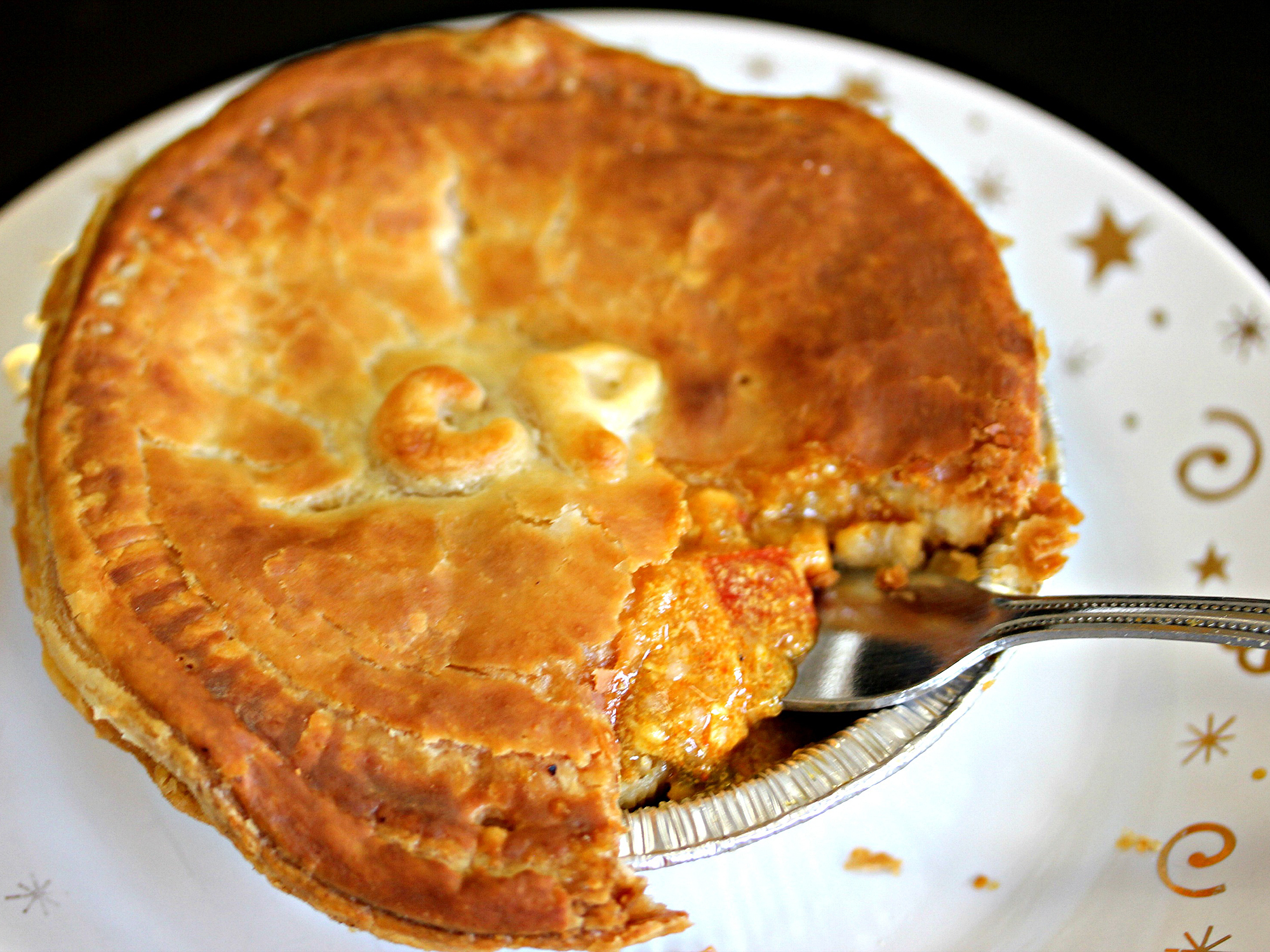ANDREW DUNLOP IS THE FIRST TO ADMIT that South African BBQ, which his Lincoln Square restaurant Baobab BBQ specializes in, doesn’t actually exist as he does it. That is, South Africans have the braai, which is a form of grilling, but what he’s doing has less to do with that than with the kind of low-and-slow barbecue typical of the U.S. south. He considers what he’s doing at Baobab BBQ, mixing American BBQ with South African flavors, a quintessentially Chicago approach to food, from someone who’s a quintessential Chicagoan. Which is to say, someone born half a world away, but resident here for almost half his life.
“We have no allegiances to barbecue here. There’s no such thing as Chicago barbecue,” he says, in the unmistakable broad, rangy accent of his native land. I would argue the point re: south side barbecue (and have), but I know what he’s getting at—all the well-known barbecue places on the north side, like Smoque (“I wouldn’t say I’m trying to copy them, but I look up to them”) are places that synthesize regional styles, putting Memphis pulled pork and Texas brisket side by side with Kansas City and Carolina sauces.
So Baobab BBQ, which has been open not much more than a week, mixes all kinds of smoked meats—ribs, brisket and hot links (from Mikeska in Texas, same as Smoque), pulled pork, chicken and even smoked salmon—a pretty good sample of the different barbecue cultures in America. As the restaurant finds its footing, he’ll add barbecued vegetables and an item rarely seen in Chicago, beef ribs, which he calls “brisket on the bone.”
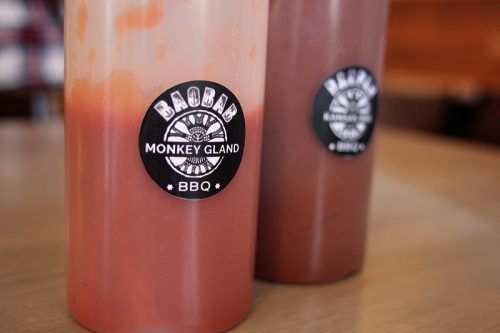
Sauces range from Kansas City style to a mustard sauce to… Monkey Gland sauce
Then South Africa enters the picture. Most obviously in the form of Monkey Gland sauce—a tangy fruit chutney-based barbecue sauce. His rub uses the bird’s eye chili—known in South Africa as the peri-peri, examples of which grow in the window boxes outside.
Poke around the menu and you’ll see biltong (a South African beef jerky—”a high protein product, very good for you,” Dunlop says), a boerewors sausage on a chakalaka bun with beans (I added Monkey Gland sauce, and don’t try to tell me you never put Monkey Gland on a boerewors), and desserts like melktert (a runny custard with cinnamon, simple and delightful). The decor, including a logo of the baobab tree and a rough wooden wall made of a repurposed picket fence, suggests the welcoming informality that Dunlop wants his place to represent.
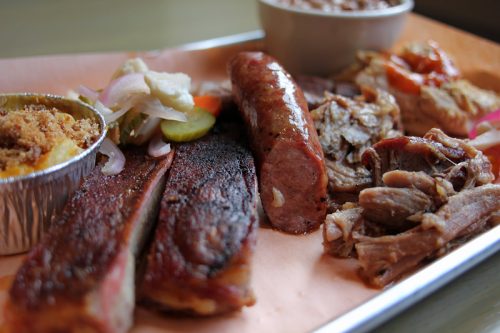
BBQ combo platter: ribs, Texas hot link, brisket, pulled pork, pulled chicken
“I’ve been a chef for 25 years, and it’s always been my end goal to own my own place,” he says. “I did fine dining, I did hotels, I did catering, I did private clubs. But it always felt a little too conforming. I prefer a more casual way of eating, big meats, roasted barbecue.”
We only saw America on TV, and it was the absolute pinnacle. So I wasn’t going to pass that up.
South Africans “are like everyone else—we love our comfort foods,” he says. “I want this place to be a place where South Africans come together and meet fellow South Africans.” But it’s the area he’s opening in, closer to Bowmanville than the restaurant strips on Lincoln and Western, that he’s most focused on serving. “My first priority is this neighborhood. I love this neighborhood, I live nearby, I take my kids to play baseball in Warren Park, we go to Winnemac Park.”
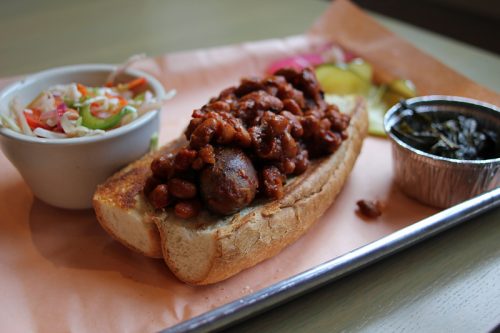
Boerewors sausage on chakalaka, with cole slaw and collard greens
He points to one communal table as an example of how he hopes his place can be a meeting and gathering place for the neighborhood, which doesn’t have many notable food businesses. Then he directs my attention to a chalkboard across from the menu—a portion of sales goes to support teachers in schools in the area, and you can pick which one you wish to support. “It’s not going to schools, but to teachers. My mother’s a teacher, and I remember her spending her money on school supplies. I really want to support the teachers.”
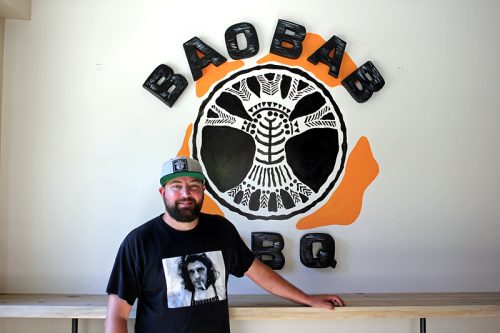
Andrew Dunlop
“WHEN I LEFT IN ’97, THERE WERE A MILLION South Africans in London—and the first thing you do when you get off the plane is go to a South African pub. It makes no sense,” he laughs.
Dunlop’s path to this stretch of Foster Avenue near Western started with looking for a way to advance in, and get out of, South Africa. “When I left high school I went to a Swiss hotel school and studied hotel management. I fell in love with the kitchen immediately, I worked 3 or 4 years in high end hotels,” he explains. “Everybody my age was like, let’s go to Europe. Go there for a year, the pound was so much stronger, work for a year and come back and buy a house.”
Working for Hilton, he got a transfer to London and then to Cardiff. There, a colleague from South Africa told him about an opening for a banquet chef at the Drake Hotel in Chicago. “We only saw America on TV, and it was the absolute pinnacle,” he says. “So I wasn’t going to pass that up.”
He came to America just before the turn of the millennium, and worked three years as banquet sous chef. Then Hilton transferred him to Curaçao—returning him a bit to his roots. “That was interesting because you had the Caribbean flavors, a lot of the African aspects of cooking. You could just see it.”
He worked for Kevin Hickey at the Four Seasons—”That was eye-opening to me in terms of service, and offering a product that was so much more than just food.” By then he had kids, and looking for more family-friendly hours, he spent nine years working for a private club, the Chicago Club.
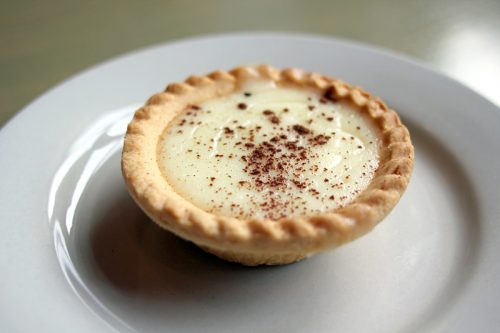
Melktert
“I started to get that itch—I think everybody does. All cooks do,” he says. He took a position as the head of catering for a smaller, more entrepreneurial company, the LM Restaurant Group. “In that year and a half they opened Mi Tocaya, Passerotto and Land and Lake,” he says. “That was my real learning ground. I realized, I could give this a go.”
For barbecue, he settled on a CookShack smoker, using wood pellets to add flavor, which is installed just outside the back door in the kitchen. “It’s a phenomenal smoker,” he says, though he can’t show it to me—at this point, a couple of weeks before opening, it’s still in his backyard as he’s getting the hang of it there. Brisket will spend 14 hours in the smoker, with ribs taking about 4 and chicken 3-4 hours. The full kitchen includes a grill, which he’ll put to use on chicken in particular—”Smoke it part way, finish it to order on the grill, because you don’t get a good texture on the skin from just smoking,” he says.
He brings up Smoque again, and talks about admiring how the owners stay on top of the business. “Every time you go in there, one of them is always there, directing people to where to sit. They always get you a seat when your food is ready, no matter how busy they are.” He seems lost in thought for a moment, then laughs. “Those are great problems to have, eh?”
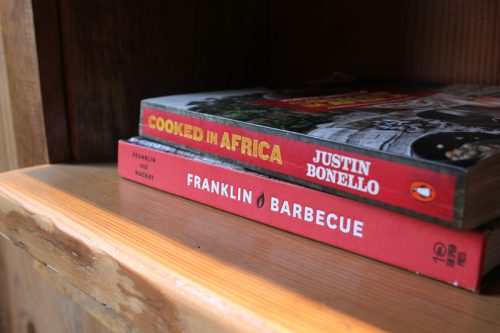
Inspiration
Well, maybe like Smoque, he’s opening just in the right middle of nowhere to become the hit of a neighborhood that hasn’t had one before. “It’s changed a lot, but it’s still kind of a food desert,” he says of the immediate area.”I want my kids to be able to come here after school. Maybe I have that idyllic idea of my kids working hard and being part of the family business. But it’s been great—my son helps out, and my daughter is actually ten, but she has a lot more focus on the business.”
“The community has been wonderful. We’ve had so many people come by and say, we’ve been waiting for this. My biggest hope is that we show our appreciation to the neighborhood, and really give them something they can be proud of.” No matter how far it’s come, from all around the world, to get there.
Michael Gebert is fundi of Fooditor.
Latest
Join the Discussion
After you comment, click Post. If you're not already logged in you will be asked to log in or register with Disqus.



